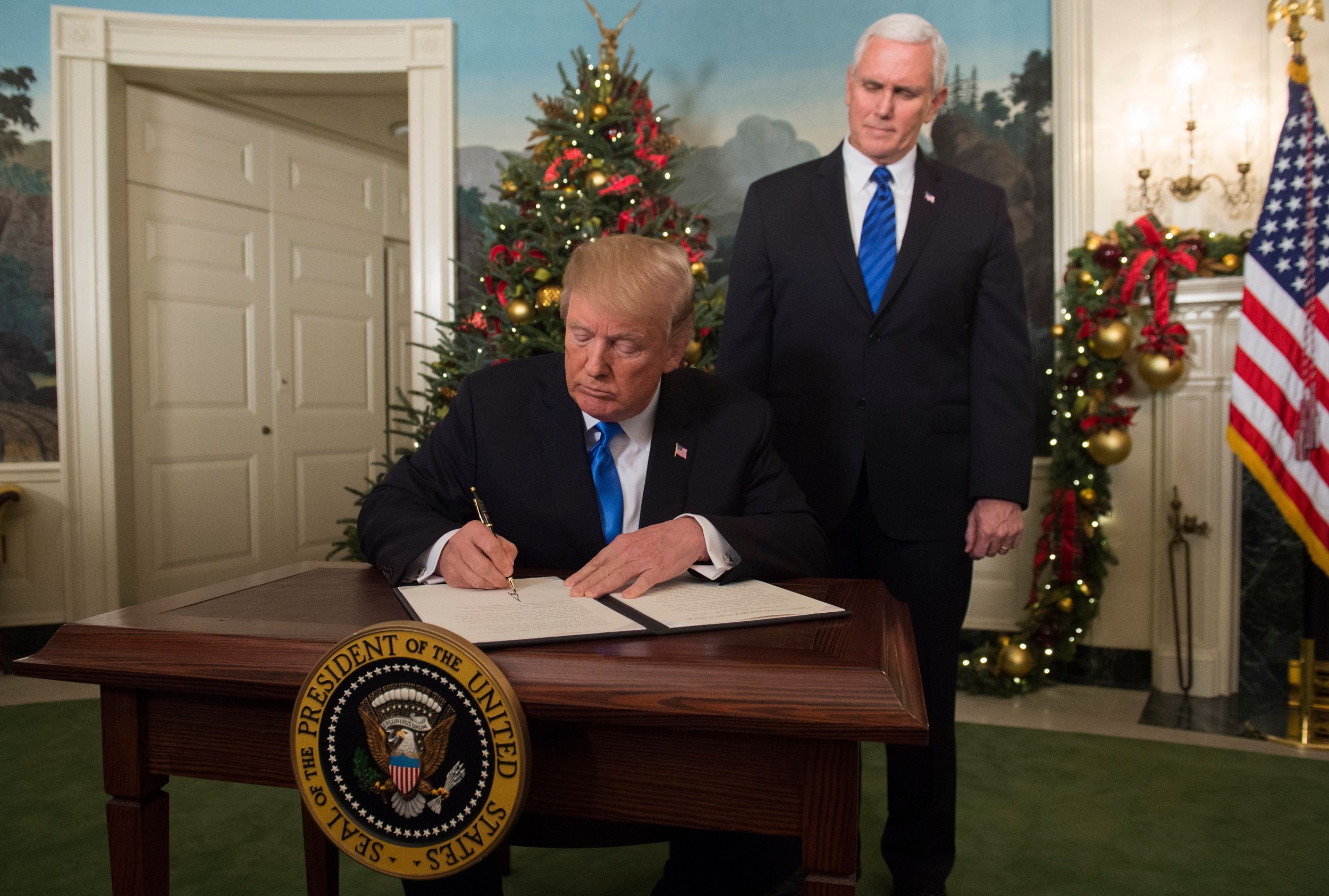
After over a year of mysterious discussions, reports suggest that President Trump will finally unveil his Middle East peace plan during early 2019. The "deal of the century" purports to lay out a strategy to deliver peace in the region, and to come to a final agreement to settle the decades-long Israel-Palestine conflict. The bungled Israeli intelligence mission that sparked the latest round of violence in Gaza recently - the worst outbreak of fighting since 2014 - indicates that President Trump's proposal urgently needs to address the deep-seated, unresolved grievances that have been fermenting for 70 years.
Unfortunately, the prospect of delivering a proposal that addresses the complexities and nuances of the Israel-Palestine conflict is remote. This month marked half a year since Donald Trump moved the US embassy from Tel Aviv to Jerusalem. In the blink of an eye, the President managed to reduce the most contentious issue of the 70 year long conflict to a transactional policy move, demonstrating inadequate levels of nuance, care and consideration for basic elements of this conflict. Both sides – especially the Palestinians – are growing more disillusioned with the prospect of a plan that delivers long-lasting peace; the US needs to either step up its game and take the nature of the conflict seriously, or step aside and let someone else take the lead.
Until now, the President's approach to US foreign policy in the Middle East has focused on fighting terrorism, containing Iran and supporting Israel. His approach to Israel-Palestine is reflective of this strategy; he has played both nations off each other, and following the embassy move to Jerusalem, he whimsically declared that "the Palestinians will get something very good because its their turn next. " This has done little to inspire faith on either camp has left a particularly bitter taste in the palates of the Palestinians.
Shortly after this, the President halted all US funding to UNRWA and ordered closure of the PLO office in Washington DC. These actions threaten to completely alienate the Palestinian people; without a drastically different approach to this conflict, the President's deal will fall on deaf ears and will be outrightly rejected by Palestine, as indicated this weekend by PA President, Mahmoud Abbas. Presently, the offer is not a compelling enough prospect to bring either side to the negotiating table.
There are three specific areas where President Trump could make some clear policy shifts, which may subsequently assist the brokering of a viable agreement between Israel and Palestine.
First, demonstrate assertive leadership. The US has traditionally played the role of an honest broker between the Israelis and Palestinians. However, engaging in orb dances with a military despot, entertaining the Saudi regime despite evidence of their extra-judicial killing of US-resident and Saudi citizen Jamal Khashoggi for the sake of arms contracts and engaging in the training and military assistance of the Saudi-led coalition heading the ongoing devastating war in Yemen distinctly fail to demonstrate President Trump's commitment to upholding international human rights standards. In order for the US to demonstrate that they are indeed capable of delivering this peace deal, they must lead by example.
Second, re-evaluate the existing strategy to demonstrate a clear understanding of the complexities and nuances that drive and fuel the Israel-Palestinian conflict. The fate of Israel and Palestine has not yet been sealed, and it is not too late for a change in strategy. In fact, this would echo actions taken by the two previous administrations deviated following midterm elections.
In 2006 the Democrat victory in Congress prompted Bush to alter his Iraq strategy, and in 2010, the Republican midterm victory prompted Obama to back the military intervention in Libya. President Trump may now have a Condor Moment, and he should use this time to carefully re-evaluate how policy decisions at the top have tangible effects on the ground, especially concerning a conflict as raw and emotive as this one. Should he fail to do so, the latent violence that has been sporadically erupting over the past six months in Gaza may likely escalate to another fully-fledged, devastating conflict, prolonging the cycle of violence.
Third, hold Israel accountable for its actions that contravene international law and human rights violations, primarily in the context of settlement building in the West Bank and the use of excessive force on Palestinian civilians. This point actually reinforces the first: the US must lead by example. Israel's planned demolition of the Bedouin village Khan al-Ahmar is a key recent example of the US failing to uphold these principles by making no definitive statement in opposition to the planned action.
At this stage, there remains no visibility over what the 'deal of the century' looks like, and judging from actions already taken, the future looks bleak; Trump's transactional approach to foreign policy appears like it might be a strategy that he is pursuing for the long term. The Palestinian people are disillusioned with the status quo, and rightly so. They can – and must not – rely on the US to be their dominant negotiator, and instead must look elsewhere for alternative partners. Since the UNRWA funding cuts were issued, dozens of nations have stepped up their funding to compensate for the US's shortcomings. European nations—independently and as the European Union—look to be a likely prospect to take America's place.
Uncommon Knowledge
Newsweek is committed to challenging conventional wisdom and finding connections in the search for common ground.
Newsweek is committed to challenging conventional wisdom and finding connections in the search for common ground.
About the writer
To read how Newsweek uses AI as a newsroom tool, Click here.








